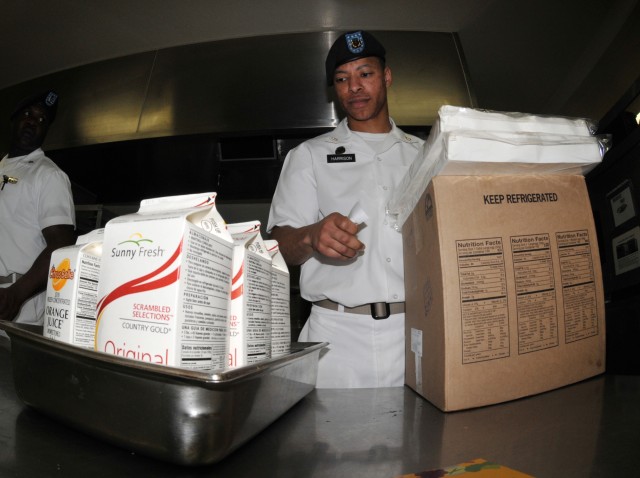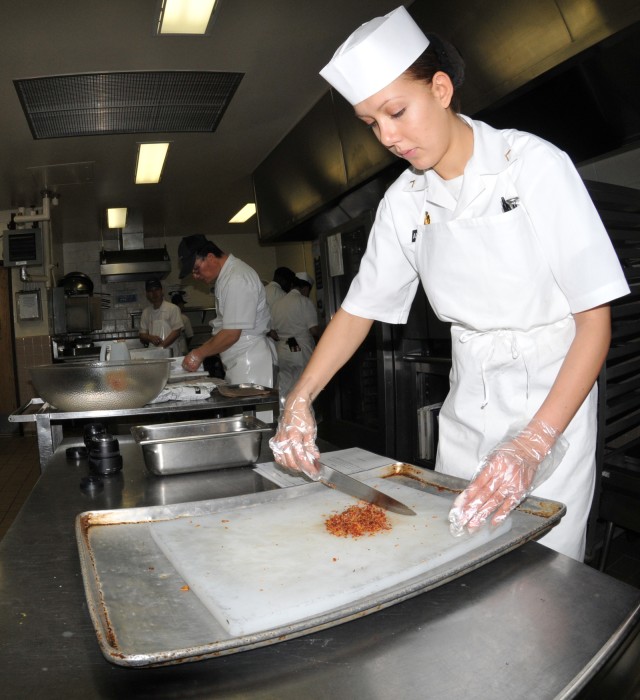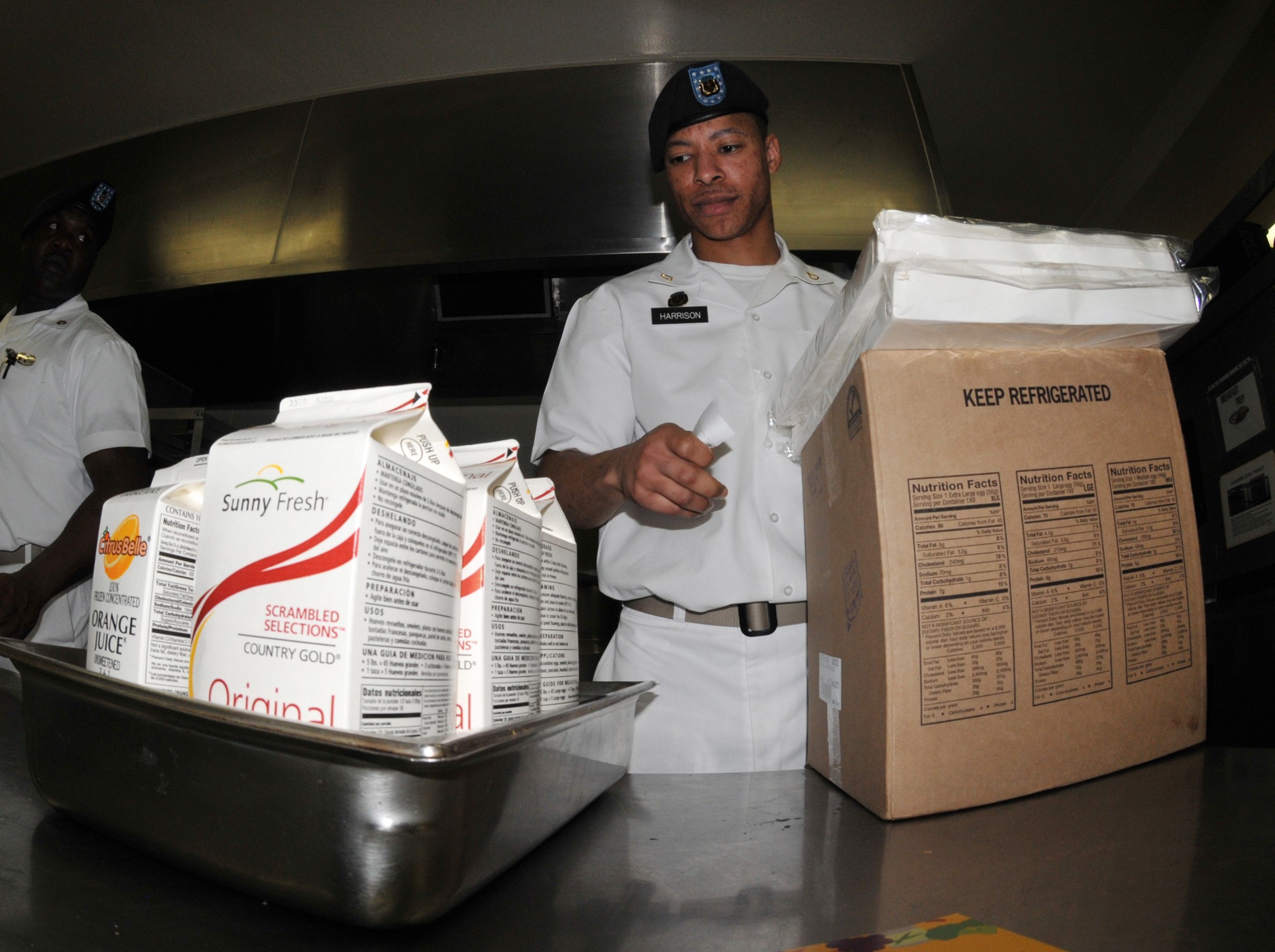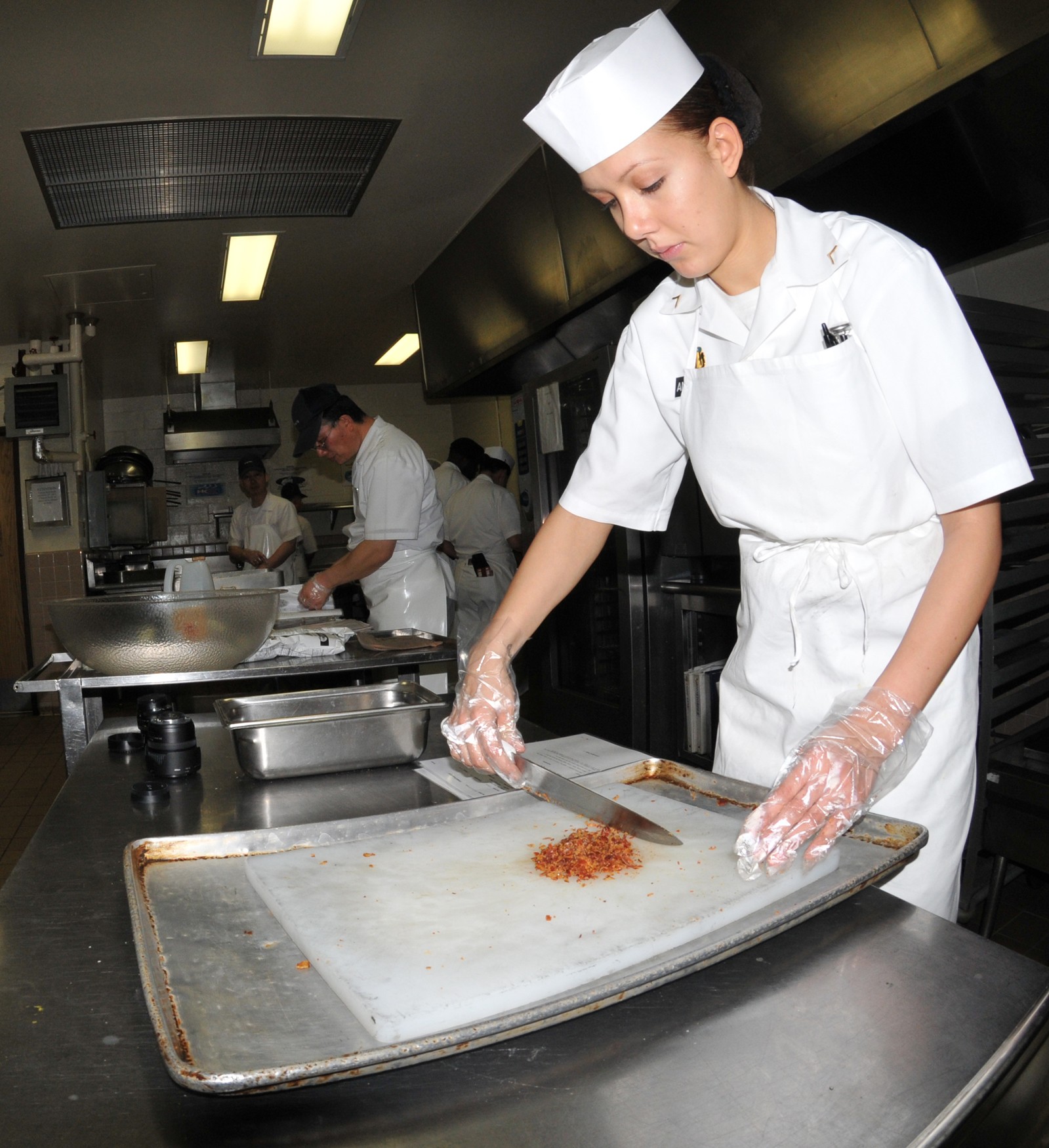YONGSAN GARRISON, Korea - A meal at 1st Signal Sports CafAfA this month could involve an encounter with a six-foot banana preaching a message of repentance.
In honor of National Nutrition Month, Soldiers dressed as giant fruits and vegetables are proclaiming the end may be near for unhealthy eaters - or at least nearer than it would be for those who maintain a wholesome diet.
Sgt. 1st Class Marion Rogers, 1st Signal Sports CafAfA manager, is behind the fruit caricatures and he's on a mission to heighten awareness among Soldiers about the importance of eating healthy. The human-fruit hybrids are charged with handing out nutrition literature and encouraging healthy choices. Although they'll hang up their costumes at month's end, Rogers said nutritional awareness is a year-round effort at his dining facility.
That is probably why his sports cafAfA is one of four finalists competing for bragging rights in the Inaugural 2011 National Nutrition Month Competition in Korea. This competition is designed to uncover the prestige of Korea's most worthy DFAC in March - a time when nutrition is formally recognized in the United States since 1980. Of the 25 DFACs on the peninsula, only one was chosen from each of the four areas to be a finalist. They are:
- Area I: Camp Casey's World Class CafAfA.
- Area II: Garrison Yongsan's 1st Signal Sports CafAfA
- Area III: Camp Humphrey's 2nd CAB DFAC
- Area IV: Garrison Daegu's Henry Diner
These facilities competed this week for first place in best practices as a nutritional food provider and most creative promotion of healthy eating among its customers. The winner will be announced April 22.
Ironically, the founder of this peninsula-wide competition isn't in the food service business at all. Maj. Ronna Trent, 65th Medical Brigade nutrition consultant, sparked this effort by asking one question: Why is it that medical professionals who promote healthy living and culinary professionals who provide garrison dining have not collaborated efforts with food service' Trent said the nutrition competition is a good way to merge their efforts, and it "brings nutrition front and center to Soldiers" in the very place they eat.
The idea isn't so much to proselytize her faith in nutrition to unhealthy eaters, but instead spread awareness about food quality and quantity in a way that is fun and friendly. Trent used the following metaphor as an explanation: "If everyone has a dirty front yard, those who might otherwise keep their yard clean may give up the effort," she said. "By having this friendly competition we encourage people to clean up their yard," which in turn will influence others to do the same.
In order to be competitive in this competition, Trent said it takes more than just providing healthy food options. All DFACs on the peninsula use the same prime vendors anyway, which means the food is the same at all facilities - it only differs in preparation. What gives a DFAC the competitive edge is how well it educates and promotes nutrition and healthy eating. Sgt. Maj. Michael Davis, 8th Army chief of food operations, made it clear that "This is a matter of awareness."
Davis, who has run several of his own DFACs, said tangible methods of communicating nutrition have the best impact on customers. Displays such as a simulated pound of fat, amounts of sugar in soft drinks, and 3D nutrition pyramids are a few examples. Some facilities might have people present taking blood pressure for interested patrons and others might be offering free cholesterol checks. Davis said efforts of this kind are successful because they bring a Soldier's mind to nutrition in the very place where he dines. So, "it's not just about the food being served, but about influencing the customer" to make better choices, he said.
Does this mean DFAC managers must resort to dressing up their Soldiers as grape clusters and carrots' Perhaps. But as Rogers would probably say, the means in this case will justify the ends: a longer life, a healthier Army.




Social Sharing